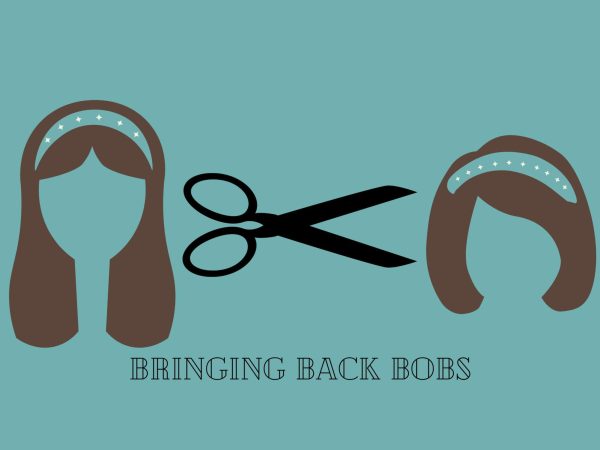Living on borrowed time
January 23, 2017
In the beginning of a presidency which notoriously avoids expressing concrete opinions on the minimum wage, conversation in this issue now matters more than ever. Experts, government policymakers, and activists alike have seen this need, writing articles debunking claims about raising the minimum wage.
These advocates claim not only that a minimum wage raise must be necessary, but that it will not bring on the consequences that minimum-wage-objectors claim will come from a raise to $12 or $15 and hour. They claim that at the level of other postindustrial countries, our minimum wage would pay $12 an hour, instead of the current $7.25. In fact, the majority of states already have minimum wages higher than the federal level with few negative consequences. However, as I mentioned, dozens, if not hundreds, of these articles already exist, so I suspect one more would make no difference. Instead, I would like to expose a deeper, more central flaw to the arguments of opponents of the minimum wage raise, one that exists even assuming the validity all of their claims.
According to the U.S. Department of Labor, teenagers make up only 11% of federal minimum wage workers, which means that an ever-increasing number of households rely on minimum wage jobs to put food on the table, clothes on their backs, and shoes on their children’s feet. Minimum wage work no longer solely, or even primarily, benefits teenagers and high-school dropouts.
When established by the Fair Labor Standards Act (FSLA) in 1938, the minimum wage amount fluctuated. Instead, “employers and employees in any trade or industry… [should] establish by mutual agreement… minimum rates of pay.” Even if inflation did not exist, and $7.25 would stay $7.25 no matter how far in the future one looks, a family cannot buy food, clothes, and education on seven dollars and twenty-five cents. The purpose of the minimum wage has shifted, and so must the minimum wage as well.
Notice though, how I said “if inflation did not exist” when describing a situation in which the intentions of the minimum wage would carry on into the present. This distinction underpins the most pressing reason for raising the minimum wage: the simple reality of economic inflation.
In 1938, $7.25 would buy about what $124.10 would buy today. Conversely, the FLSA’s minimum wage of $0.25 would buy approximately $4.28 worth of goods and services in 2017. Those numbers resist comparison, though; the difference in the $4.28 (really $0.25) of 1938 and the $7.25 of 2009 comes from the great change in standards of living. Life improved over that time, and so too did the cost, adjusted for inflation, of maintaining that life. The raise in the standards of living can exacerbate the absolutely massive effects on inflation over time. Inflation — the gradual decrease in the buying power of an individual dollar — must occur for an economy to grow. Over enough time, any amount of money becomes worth less and less, until the price of a couch in one time could only buy a chicken sandwich in another.
So the question lies not in whether to raise the minimum wage, but when? If the average price of the dollar continues to decrease and Congress takes no action, $7.25 will scarcely buy more than a single toothpick. Now of course, that day lies far in the future, but it demonstrates the inevitability of a raise in the minimum wage. After all, imagine the absolute poverty if today’s minimum wage still payed the twenty-five cents of 1938!
Raising the minimum wage comes inevitably, and Congress has legislated in accordance with this certainty time and time again. However, treating a raised minimum wage as historical inevitability can be harmful to those most vulnerable, as waiting for a solution in the future only harms those in the present.
With high levels of poverty and economic devastation coming out of the 2008 financial crisis, the United States must take action to improve the lives of common workers now, not next year, or the year after that, or decades in the future.
Easily replaced, minimum-wage workers must accept whatever wage and working conditions their employers offer, no matter how awful or how small — what experts call “wage stagnation.” This not only creates massive wealth inequality, but also keeps wages artificially low for employers.
As I established earlier, most minimum wage workers must support a family on their wages, and so this creates a situation where massive numbers of people must work two or three jobs to put food on the table.
The U.S. cannot wait to raise the minimum wage until some far-off future date; it must act in the present to alleviate the crippling poverty and income inequality that plagues this nation. In the words of President John F. Kennedy: “If not us, who? If not now, when?”



















